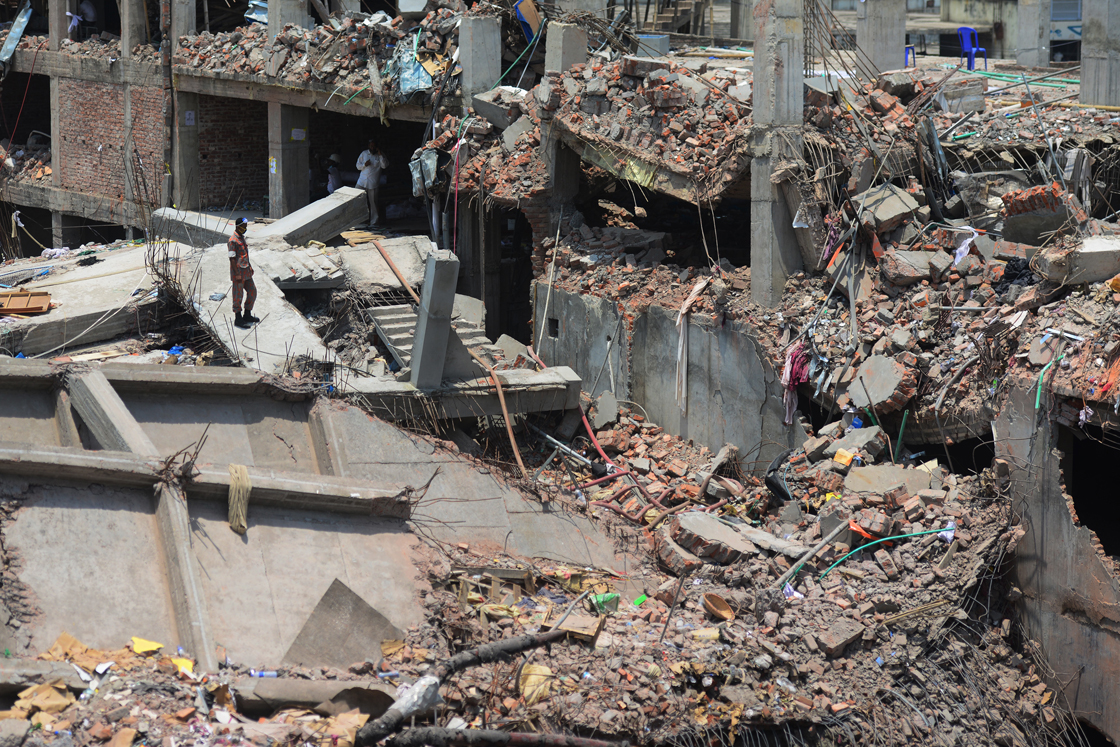Canada’s Loblaw Inc. has officially become one of 24 countries to sign an international agreement to ensure worker safety at textile factories in Bangladesh.

Loblaw, the maker of Joe Fresh, has joined European companies like H & M, and Benetton in collectively pledging $60 million over a five-year period to create a safe and sustainable “Bangladeshi Ready-Made Garment” industry.
The Bangladesh Accord on Fire and Building safety was created and signed in the wake of a factory collapse that killed more than 1,100 people in Bangladesh.
“We recognize the commitment that these companies are making towards ending the cycle of factory disasters in Bangladesh,” IndustriALL general secretary Jyrki Raina said in a statement () on the union’s website. “We call on all other global brands sourcing from Bangladesh to join us in making sure that every garment worker in Bangladesh can work in safety.”
IndustriALL – a global union representing 50 million workers in 140 countries in the mining, energy and manufacturing sectors – helped to author the accord and is expecting more companies to sign.
For Charles Kernaghan, director at the Institute for Global Labour and Human Rights, said this a significant development for worker safety, an area companies have ignored in the past.
“This is a major step forward without a doubt,” said Kernaghan. “The Rana Plaza collapse shocked European retailers and this accord they’ve come up with is legally binding in improving worker safety.”
- Honda expected to announce Ontario EV battery plant, part of a $15B investment
- Trudeau says ‘good luck’ to Saskatchewan premier in carbon price spat
- Canadians more likely to eat food past best-before date. What are the risks?
- Hundreds mourn 16-year-old Halifax homicide victim: ‘The youth are feeling it’
Under the agreement, companies are responsible for implementing a fire and worker safety program in Bangladesh within a period of 45 days.
The agreement specifically holds the signatory companies responsible for ensuring their suppliers properly implement building safety inspections, fire safety training and opening up a larger role to the International Labour Organization (ILO).
“Trademarks are protected by international property rights, meaning the labels are legally protected,” said Kernaghan. “Now what Europe has done is bring up legislation to legally protect workers.”
North American companies like Wal-Mart have refused to sign the agreement, stating that the European pact constrains the rights of U.S companies.
“While we agree with much of the proposal, the IndustriALL plan also introduces requirements, including governance and dispute resolution mechanisms, on supply chain matters that are appropriately left to retailers, suppliers and government, and are unnecessary to achieve fire and safety goals,” Wal-Mart said in a press release.
Wal-Mart, which currently has 279 factories in Bangladesh, announced Tuesday that it would conduct safety inspections at all its factories in Bangladesh that produce goods for the retailer and provide remediation where necessary.
“It’s an embarassment for the (U.S) that Wal-Mart, Gap and Hanes won’t go along with the agreement,” said Kernaghan. “Corporate monitoring has never worked in the past and eventually everyone is going to follow (the Bangladesh Accord) because voluntary measures just don’t work.”


Comments